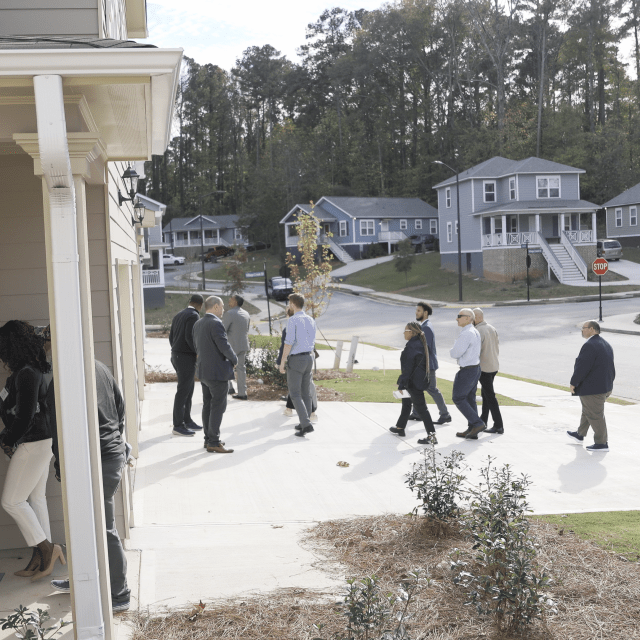Gov. Gavin Newsom signed the fiscal year 2023-24 state budget on June 27, bringing California’s budget process to a close. Despite the over $30 billion budget deficit, the state budget maintains prior year commitments of investing $2.5 billion in affordable housing production and preservation, homelessness, and housing-related infrastructure.
We extend our appreciation to Gov. Newsom and the California Legislature for maintaining these commitments to house low-income Californians most in need. While we thank state leadership for these important investments, one-time investments, especially at this limited scale, are not sufficient to meet California’s affordable housing and homelessness needs, which is why we’re looking ahead to the March and November 2024 ballot for additional sources of funding.
The final budget includes the following highlights:
- $500 million for state Low-Income Housing Tax Credit
- $325 million for the Multifamily Housing Program
- $225 million for the Infill Infrastructure Grant Program
- $50 million for the Veterans Housing and Homelessness Prevention Program
- $50 million to CalHome
- $50 million for the Accessory Dwelling Unit Grant Program
- Homeless Housing, Assistance, and Prevention (HHAP)
- $1 billion in funding to support Round 5 of local efforts to reduce and prevent homelessness.
- Provides an additional $1 billion in Round 6 of the HHAP program.
- Foreclosure Intervention and Housing Preservation Program (FIHPP)
- Retains $82.5 million for the 2023-24 fiscal year.
- Defers $345 million previously allocated to the program to subsequent years
We look forward to continuing to work with the administration and the legislature to develop a comprehensive, long-term investment strategy that prioritizes significant, ongoing funding to solve homelessness and ensure that every Californian has a safe, stable home that they can afford. Ongoing investments can address the disproportionate harms of skyrocketing housing costs, housing instability, and homelessness on Black, Indigenous, and People of Color (BIPOC), people living in poverty, and other marginalized communities.
Looking ahead, Enterprise will continue to work with our partners as well as the legislature and governor to advance much-needed transformation on the 2024 ballot:
- Provide permanent homes for low-income Californians, protecting them from falling into homelessness or allowing them to exit homelessness, through a potential 2024 statewide affordable housing bond – AB 1657 (Wicks). This includes preventing displacement, while expanding the stock of affordable housing quickly and cost effectively by funding the Community Anti-Displacement and Preservation Program (CAPP) to acquire unsubsidized affordable housing and make them permanently affordable.
- Empower local governments to raise funding for affordable housing through bonds by lowering the vote threshold down to 55 percent – ACA 1 (Aguiar-Curry). ACA 1 would unlock billions of dollars of local funding to address local housing needs.
- Pair permanent housing solutions with strategic investments in behavioral health services and supports. The Governor’s proposal would shift a bigger portion (30%) of MHSA funds to housing-related expenses (SB 326 Eggman) and advance a $4.68B bond (AB 531 Irwin), with 82% going to create an estimated 6,000 treatment beds and 18% going to 3,600 beds of permanent supportive housing for veterans and people experiencing or at risk of homelessness with serious mental illnesses.
Enterprise remains steadfast in our commitment to advocating for more resources to address the housing needs of low-income Californians across the state. We look forward to working with our partners, the legislature, and the administration to continue to elevate housing as a top priority for the state, with more significant investments to match.

